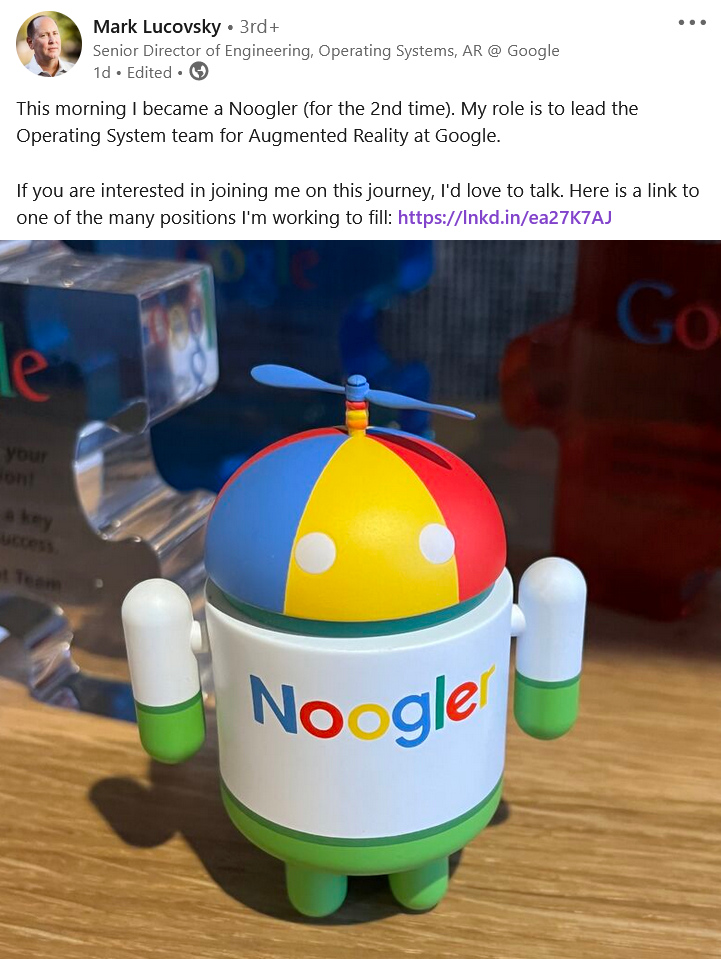Google is now hiring for the purpose of creating an “Augmented Reality OS” for an unspecified “innovative AR device,” signaling that the California-based company is finally hopping onto the AR/VR bandwagon, joining the likes of Apple and Meta.
The information comes from Mark Lucovsky who shared on LinkedIn on Tuesday that he now leads the “Operating System team for Augmented Reality at Google” (via 9to5Google). He earlier worked for four years as general manager for Operating Systems at Oculus VR/Facebook/Meta. Before that, Lucovsky was at Microsoft for 16 years before working at Google from 2004-09.

The new director also shared a link under the same post for the role of “Senior Software Engineer, Embedded Systems, Augmented Reality OS,” under which it’s written that the Google team is building the software components that control and manage the hardware on our Augmented Reality (AR) products.
“The Google Augmented Reality (AR) team is a group of engineers, designers, and research scientists tasked with building the foundations for great immersive computing, and prototyping helpful, delightful user experiences. We’re focused on making immersive computing accessible to many people through mobile devices, as our scope continues to grow and evolve,” further states the listing.
There are other roles too that explicitly state that Google is building an “innovative AR device.” For example, the role of Senior Software Engineer, Camera, Augmented Reality OS clearly states that as part of the team, you will be responsible for overall camera device software for an innovative AR device.

Most of the positions are based in the US while some are also based in Waterloo, Canada. The latter is responsible for Focals and was acquired by Google last year. The Augmented Reality OS team sits under the Devices & Services team responsible for Pixel, Nest, and other hardware.
Google already has Android, Chrome OS, and Fuchsia operating systems under its name so the new AR-based OS will be yet another feather in the cap. The OS will likely be powering next-gen augmented reality hardware, fulfilling requirements like voice command accuracy and visual recognition.
Notably, companies like OPPO have already been making strides in the AR space, recently unveiling the OPPO Air Glass that snaps onto your regular specs and offers a display with an average brightness of 1400nits. Read more about it here.
RELATED:
- Google announces Android 12 Go Edition with improved performance
- TCL temporarily pulls back Google TV models from stores due to performance issues
- Google – Year In Search 2021: A touching reflection of a world struggling to heal
- Google will bring Android games to Windows 10 and 11 next year
- Xiaomi invests in VR based firm founded by known Movie Director Zhang Yimou




